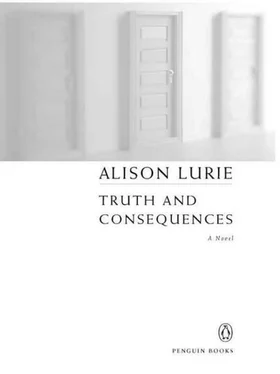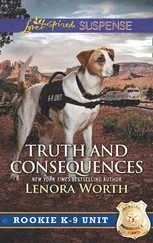Meanwhile, the news of Alan and Jane’s separation had made a considerable stir locally. Acquaintances, including a couple of single women whom he hardly knew, invited him to dinner and attempted to pump him for details and motivation; friends sympathized and attempted to give advice. Bernie and Danielle Kotelchuck gave him roast beef and beer and suggested that he try to make it up with Jane, who, they said, was essentially a very good person. Gilly and her husband Pedro gave him stir-fry and marijuana and suggested that he and Jane go together to a very good crisis mediator they knew. Public opinion, largely, was on Alan’s side. Jane, after all, had deserted an invalid husband—a cruel, selfish act. She had also walked out on someone who was beginning to have considerable artistic success—a foolish, impulsive act, possibly motivated by envy. If she had supporters, they did not speak to Alan.
Early in February Jane asked Alan to have lunch with her on campus and suggested that they file for divorce. She didn’t think they would be getting back together, she said—and he had to agree. She also declared that she wanted to be fair about everything. They had already split the checking and savings accounts, and she didn’t want any part of Alan’s TIIA/CREF, which his salary had paid for.
Jane didn’t want the house either. She knew Alan loved it, but she never had, really. Yes, it was old and historic, maybe even beautiful, she said. But it was awfully hard to take care of, all those little rooms and steep narrow stairs and low ceilings. It was drafty and badly insulated too, with the plumbing and heating always breaking down, and the soil in the garden was mostly clay. All she wanted was half its assessed value, not counting the follies, so that she could buy a newer, more modern house nearer to town, with good soil and a chimney that didn’t smoke. And, if it was all right with him, she’d like to take the furniture and china that had been her grand-mother’s, and her Cuisinart and all the cookbooks and garden books.
And then, Jane said, when the frost was out of the ground, and she’d found a new place, she’d like to come and dig up some of the plants from her garden: the peonies and daylilies and some of the myrtle, and the asparagus and the raspberry and blackberry canes and the rhubarb.
“Sure, you can have them all, take anything you like,” Alan had said, amazed and relieved by the modesty of her demands, and especially by the news that he would not lose his beloved house—wondering if this leniency was in part dictated by the consciousness of public opinion.
After this, when they met at the Unger Center, relations between Alan and Jane remained cordial though cool. Considering what had happened to a couple of his colleagues whose marriages had ended, he felt very fortunate. But he was stunned when, in mid-March, Jane announced that she was planning to marry Henry Hull. In the surprise and heat of the moment, Alan spoke unsympathetically of Henry, calling him a loser and a layabout and asking how she could even consider marrying someone like that. “Yes,” Jane remarked in a low, strained voice, “that’s what Henry thought you would say. It’s what he thinks everybody will say, but it’s not true. He has a perfectly good well-paying job, with more editing work than he can possibly take on.”
Yes, she admitted, her mother had been kind of upset by the idea of the marriage at first, because she disapproved of divorce, but she’d come around. She liked Henry, and so did Jane’s dad, and they could watch sports together. Anyhow, it was what she wanted to do, what was right for her.
Alan could not bring himself to congratulate her. He felt insulted, injured, and worst of all, made to look ridiculous. Naturally he wanted Jane to be happy, or at least content—it was what any reasonable man would want for his ex-wife. He had already hoped that she would meet someone suitable, someone dependable, someone more like her, eventually—but not right away. If she found someone first, it would look as if he, Alan, had been rejected. Of course, really he had found Delia first, but nobody knew that. And now, when Delia returned to Corinth, probably in a few weeks, and their relationship became public, they would be a joke. People would speak of wife-swapping. At the thought, Alan shuddered. Though he knew it to be a weakness, he still had a horror of being laughed at. It was a weakness Delia didn’t share: she didn’t care if people laughed, she had said once—it just showed how limited and stupid and conventional they were. Sometimes Alan wished he were more like her. Maybe one day he would learn to be.
If Jane and Henry were to marry after he and Delia, it might be seen as the slightly pathetic union of the two rejected, less successful partners—yes, maybe then he could endure it. He had therefore tried to persuade Jane not to announce her plans for six months, suggesting that it would look better. But she had refused. “I don’t care anymore if things look good,” she had said. “If you pour chocolate sauce over an old cake of soap it will look good, but you wouldn’t want to eat it.”
The only silver lining to the whole disaster had been the news that Delia had never been married to Henry Hull. This would not only make things simpler for her and Alan, it proved that she had had the self-respect and the good sense not to tie herself legally to someone like that. And indeed, when Jane’s plan to marry Henry Hull finally became known, she was further condemned, and so was Henry, especially by the many on-campus fans of Delia Delaney, who of course did not know that Delia loved Alan and that they would soon be together.
Yes, but when? Time was passing: the coarse, gritty, porous heaps of snow by the driveway and in the parking lots at the University were beginning to shrink. Early in April Jane asked Alan if he wouldn’t like to move back into his original office at the Center, with its north light and view of the lake and big green sofa. “No, I don’t think there’s any point in that,” he had told her. “After all, it’s almost spring now, and Delia should be back soon.”
“I’m not sure she will,” Jane said.
“Why not?” Though he tried to control it, Alan’s voice rose a bit. “Have you heard something?”
“No, nobody has. But Bill Laird thinks she’s never coming back, and she hasn’t answered any of the official letters I’ve sent her.”
“But that doesn’t mean anything. Delia hasn’t answered anybody’s letters, Susie says.” (Except mine, he thought.)
“No,” Jane said sourly. “And what that means, if you want to know what Bill thinks, and I agree with him, is that Delia doesn’t want to admit she’s not coming, because she’s on medical leave, and she wants the University to keep sending her paychecks.”
“Oh, she wouldn’t do that,” Alan said. “She wants to be in Corinth as soon as the weather’s warm enough for her to stay well.” He tried to speak firmly, reminding himself that Jane didn’t know the main reason Delia wanted to be there—but something in his voice wobbled slightly, unbalanced for a moment by doubt.
“Maybe,” Jane said. “Maybe not.”
She knows something—Henry’s told her something, Alan thought. And for a moment he felt panic. But once he was back in his office, he lifted the brown paper that covered his drawing board and slid out Delia’s three note cards. “Your downcast Dilly,” he read, and “You are in my thoughts always,” and the doubt and panic passed.
All this had been hard enough. What was worse, what was intolerable, had happened early last month. On a sunny Monday morning, Davi Gakar came into the Unger Center carrying the Style section of Sunday’s New York Times . Horribly, unbelievably, it contained a wedding announcement headlined “Delia Delaney, Wallace Hersh.” Below this was a photograph of Delia looking beautiful and Wally Hersh, the Corinth trustee, looking like a large, fat, old, bald hamster. This was followed by the disgusting, improbable news of a marriage in Palm Beach, where Mr. Hersh lived. He also, it appeared, lived in Manhattan and in Rye, New York, and was the chairman of something called Hersh International Manufacturing, sixty-four years old, and a widower.
Читать дальше







![Кэмерон Доки - Правда и ее последствия[Truth and Consequences]](/books/79610/kemeron-doki-pravda-i-ee-posledstviya-truth-and-con-thumb.webp)




